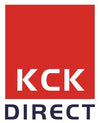Maintaining a hygienic environment at a dental office is of utmost priority. It is essential to keep the surroundings and the equipment cleaned and disinfected for every use to avoid infections. The optimal management of steam sterilization ensures a sterile working environment free of infectious clinical waste and equipment. It plays a vital role in the efficiency of the medical staff’s work and the safety of dentists and patients. Modern tools, such as autoclaves, come in handy to achieve the targeted goal.
There are several types of autoclaves in dentistry that are available in the market. This article guides you with tips for choosing the best autoclave for dental clinics. Learn more about the benefits of autoclaves in dentistry.
Autoclaves in Dentistry
As much as you need dental tools to practice dentistry, having a reliable and effective autoclave in dentistry is essential for the clinic’s smooth operation. Autoclaves are highly efficient in sterilizing dental instruments. It efficiently delivers the work of disinfecting dental tools in a hassle-free manner.
What is an Autoclave?
Autoclaves, also known as steam sterilizers, are machines used to disinfect dental tools. They primarily function through gravity or vacuum-induced sterilization methods, including pre-vacuum (pre-vac) techniques. Some types of autoclaves combine both sterilization methods. These machines harness the power of high temperature and high-pressure steam, capable of killing any living organisms and germs. Autoclaves also enable dental offices to maintain the highest hygiene standards while handling dental tools, such as forceps, intended for reuse purposes.
Autoclaving Methods
Autoclaves use two types of methods for the sterilization process; Gravity autoclaving and vacuum autoclaving.
- Gravity autoclaving is suitable for sterilizing the most common laboratory media, including steel utensils, glassware, and bio-hazardous waste. The lack of dependency on peripheral mechanisms to displace ambient air with steam and the simplicity of design makes these types of autoclaves preferable, affordable, and dependable.
- The vacuum autoclaving method is more suited in cases where air cannot be easily removed from sterilization media. Pre-vacuum autoclave functions enable complete evacuation of the ambient air and sterilization of areas that would typically be occupied by ambient air and are best suitable for sterilizing items with hard-to-reach regions within.
Also, Read: RVG in Dentistry
Types of Autoclaves in Dentistry
Choosing the best dental autoclave that is reliable and effective is crucial. With the popularity and effectiveness of autoclaves, there is an ever-rising demand for the same. There are three main types of autoclaves you can choose from; Class N, Class B, and Class S. You can choose the best autoclave for a dental clinic depending on your requirement.
Types of Autoclaves in Dentistry: Class N
Class N type of autoclaves or steam sterilizers are small dental autoclaves that are best suited if you’re looking for a space-saving solution and only require sterilizing certain materials. The “N” stands for “naked solid product.” Class N-type dental steam sterilizers do not have a vacuum pump, and therefore only solid objects or structures can be sterilized. Class N cannot be used to treat fabrics such as textiles.
Types of Autoclaves in Dentistry: Class B
Class B type of autoclaves are the most efficient and best autoclave for dental clinics. They are the most advanced steam sterilizers. Class B types of autoclaves are small in size and are best applicable if you have a space crunch. The “B” stands for “big small.” Despite their smaller size, they can put many more dental instruments for sterilization and provide excellent performance. They consist of a pre-vacuum which completely removes air from the chamber and offers excellent results.
Types of Autoclaves in Dentistry: Class S
Class S type of autoclave is an intermediate class between Class N and Class B autoclaves. It allows the sterilization of single-packed, multilayer, and more massive instruments. Class S type of autoclave uses only a single-stage pre-vacuum making them less effective than class B autoclaves.
How to Choose the Best Autoclave for a Dental Clinic?
When selecting an autoclave, consider key factors such as sterilization performance, chamber capacity, available lab space, and utility connections (electricity, water, or house steam). Also, explore additional features like automation, cycle monitoring, and drying options.
APHRODITE Steam Autoclave Sterilizer, All-American Electric Sterilizer, and Tuttnauer EZ10P Fully Automatic Autoclave are popular brand choices of autoclaves in dentistry.
For reliable, high-quality autoclaves trusted by dental professionals, check out KCK Direct – your partner in efficient and safe sterilization solutions.


